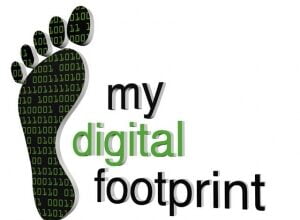 I live in a big metropolitan area and none of my doctors use email to communicate with patients. Why is that?
I live in a big metropolitan area and none of my doctors use email to communicate with patients. Why is that?
Is it because they don’t get reimbursed for email time? Their email isn’t secure? There is too much room for misunderstanding? They like the interaction of the phone call?
 I live in a big metropolitan area and none of my doctors use email to communicate with patients. Why is that?
I live in a big metropolitan area and none of my doctors use email to communicate with patients. Why is that?
Is it because they don’t get reimbursed for email time? Their email isn’t secure? There is too much room for misunderstanding? They like the interaction of the phone call?
Seems like “any of the above” are answers, when I pose the email question. I think the real reason is two-fold: they don’t have a secure email patient portal and they aren’t sure how to secure their mobile devices.
Numerous articles have been written about the debate, all of which discuss my questions. However the debate began in 2008, and it’s 2014 and my Boomer docs still haven’t gotten on board.
I love these guys (they just happen to be all men), and we’ve been together for more than 25 years, some for more than 30 years. We have a solid relationship. They have given me excellent care. While I appreciate a phone call to tell me my blood work shows I don’t need the cholesterol lowering pill anymore, it just isn’t necessary. It can be done by email.
Then there are the routine questions about drugs or supplement interactions that I’d like to ask. Nothing urgent, just soliciting their opinions. Or the referrals to another specialist—not required by my insurance, just requested by me. Task that can be done through email, not wasting our time on the phone.
None of my physicians have Electronic Medical Records (EMRs) available to patients either. However, that is a bigger cost issue, and larger debate. I understand the pitfalls of EMRs, but the benefits are huge for the patient.
Most doctors dislike EMRs, stating they are set up for billing insurance companies and are not designed for patient-centered healthcare. That may be true, but the Affordable Care Act (ACA) is making patients aware that they can and should be able to access their health records electronically.
A survey by Accenture found that many U.S. consumers (41 percent) would be willing to switch doctors to gain online access to their own electronic medical records. The study also shows that only about a third of U.S. consumers (36 percent) currently have full access to their EMRs, but more than half (57 percent) have taken ownership of their record by self-tracking their personal health information, including their health history (37 percent), physical activity (34 percent) and health indicators (33 percent), such as blood pressure and weight.
Government incentives for converting to EMRs are nearly over, so if your doctor hasn’t already begun converting to electronic records, it’s doubtful you’ll see it happening.
And, since the penalties for not using EMRs under the Affordable Care Act are so small until 2018, and confined to Medicare and Medicaid patients, it’s doubtful my more senior docs will comply. Two have even said they will retire before they “give up their paper records.”
So what’s going to happen to me, and my Boomer contemporaries who will be forced to find new doctors and won’t have any medical records to accompany us?
Our fate could be like my 81-year-old mother’s experience when she moved across country. She was armed with her paper records and brought them to her new doctors she was told, “I don’t have time to read those.”
So as senior citizens, we will meet new doctors and all of our medical history for them will come from our aging memories. Not a real healthy picture.
While it may be too late or too expensive for these Boomer and senior doctors to adopt EMR systems, it’s not too late for email. There are software programs and mobile training courses on the market for health care professionals.
If doctors really want to hold onto patient centered healthcare, they should follow Marketing 101—Give the Customers What They Want. With the proper tools, the docs may find they like the freedom of email patient discussion.
(doctors and email / shutterstock)








